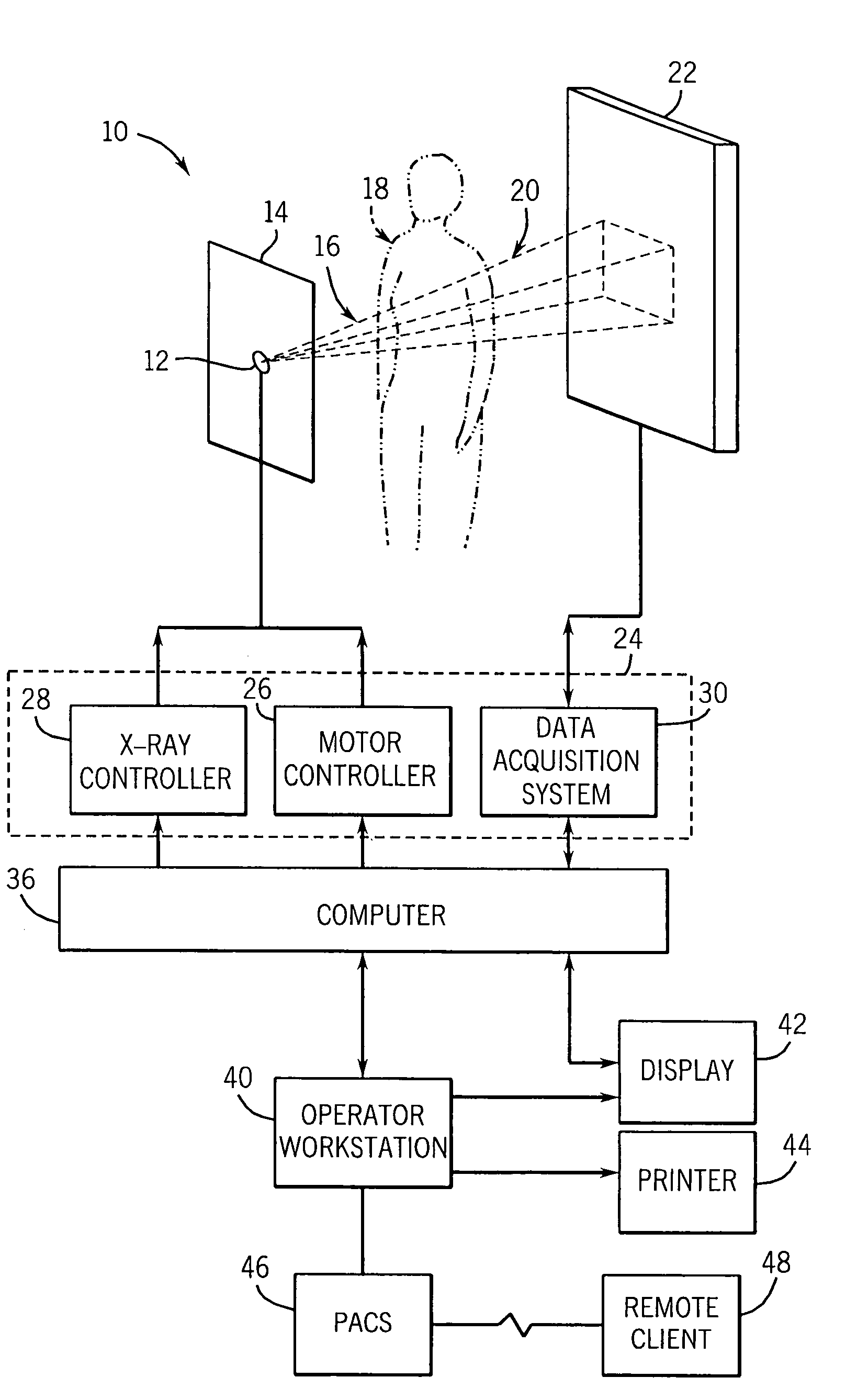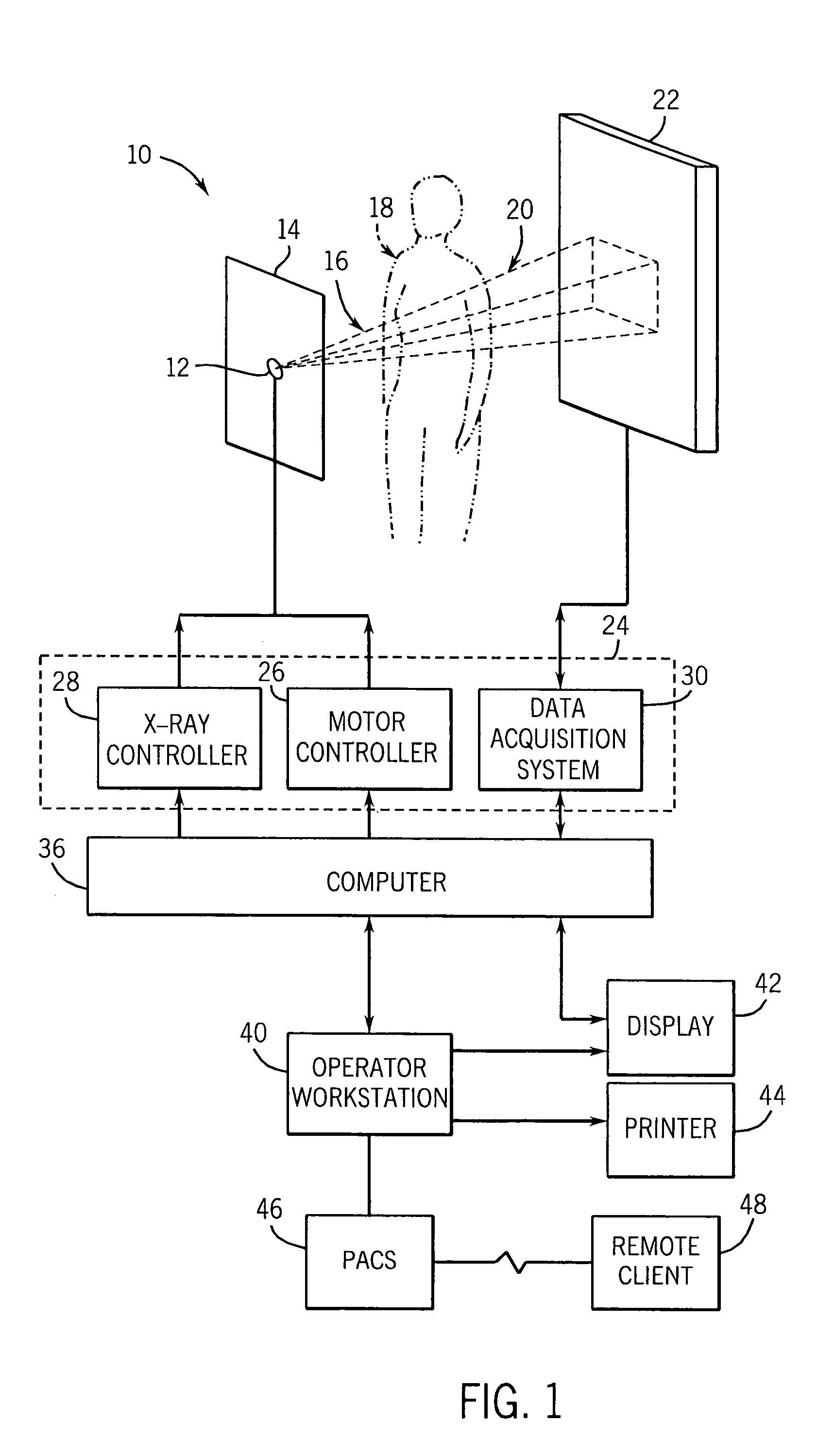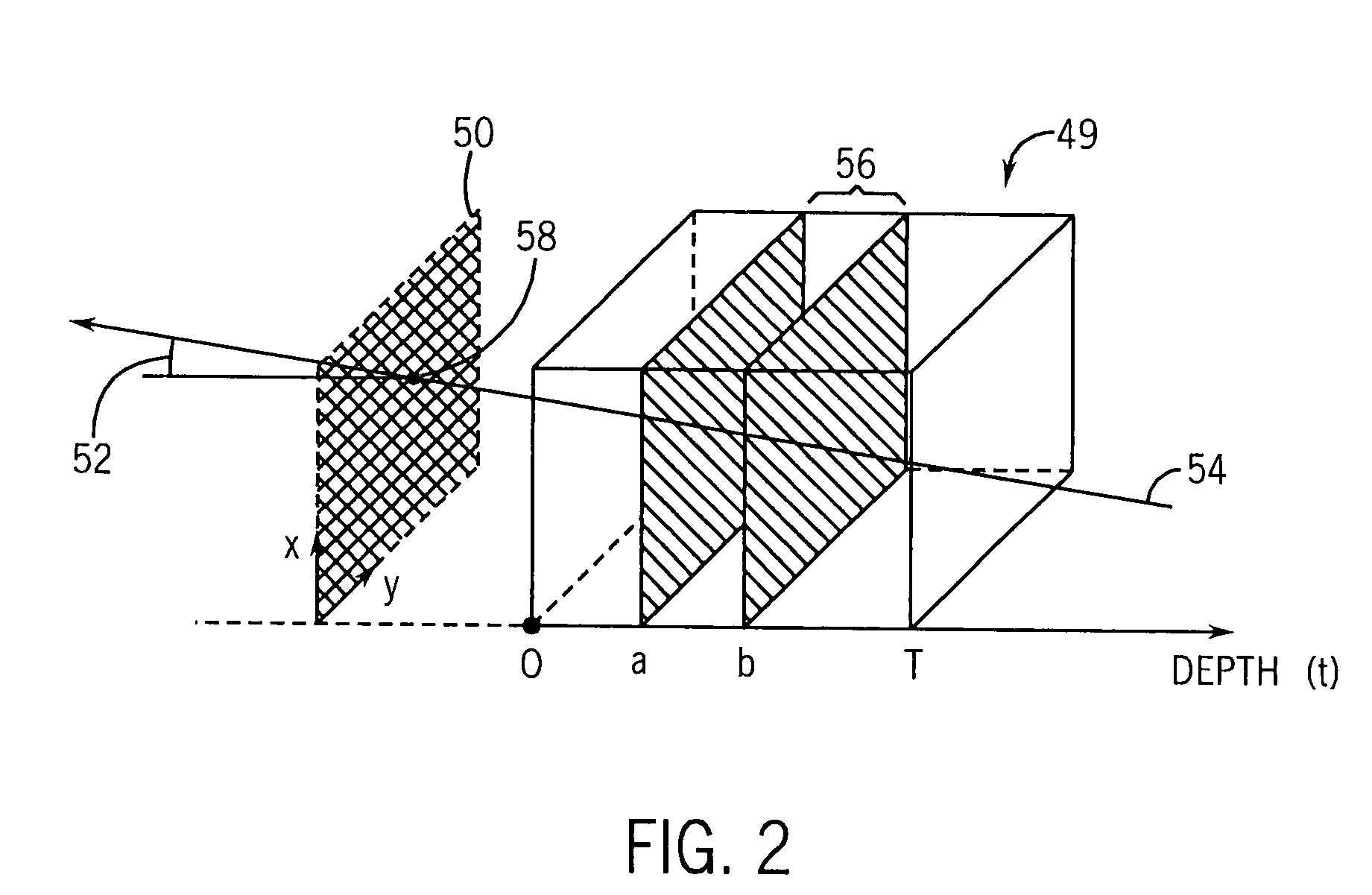Method and system for visualizing three-dimensional data
a three-dimensional data and visualization technology, applied in the field of medical imaging, can solve the problems of easy missed small structures present in a single slice, difficult to evaluate the three-dimensional volumetric image in clinical practice, and associated loss of contrast, so as to reduce artifacts
- Summary
- Abstract
- Description
- Claims
- Application Information
AI Technical Summary
Benefits of technology
Problems solved by technology
Method used
Image
Examples
Embodiment Construction
[0012]In the field of medical imaging, various imaging modalities may be employed to non-invasively examine and / or diagnose internal structures of a patient using various physical properties. One such modality is tomosynthesis imaging which utilizes a limited number of projection radiographs, typically twenty or less, each acquired at a different angle relative to a patient. The projection radiographs may then be combined to generate a volumetric image representative of the imaged object, i.e., a three-dimensional set of data that provides three-dimensional context and structure for the volume of interest. The present technique addresses visualization issues that may arise in the display of volumetric images provided by tomosynthesis imaging. In particular, the present technique allows for the incorporation of weighting into the visualization process and for various viewing modes that may benefit from such weighting.
[0013]An example of a tomosynthesis imaging system 10 capable of ac...
PUM
 Login to View More
Login to View More Abstract
Description
Claims
Application Information
 Login to View More
Login to View More - R&D
- Intellectual Property
- Life Sciences
- Materials
- Tech Scout
- Unparalleled Data Quality
- Higher Quality Content
- 60% Fewer Hallucinations
Browse by: Latest US Patents, China's latest patents, Technical Efficacy Thesaurus, Application Domain, Technology Topic, Popular Technical Reports.
© 2025 PatSnap. All rights reserved.Legal|Privacy policy|Modern Slavery Act Transparency Statement|Sitemap|About US| Contact US: help@patsnap.com



